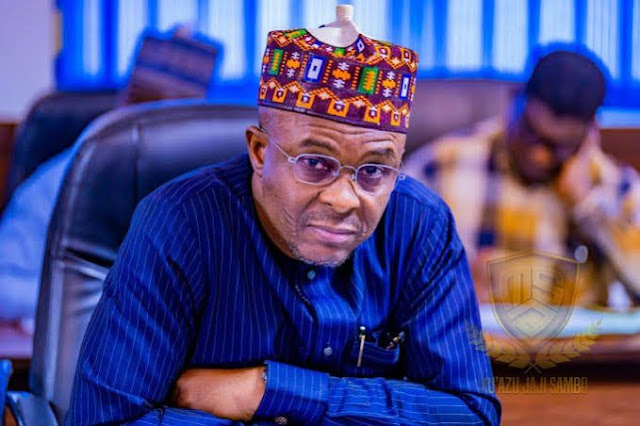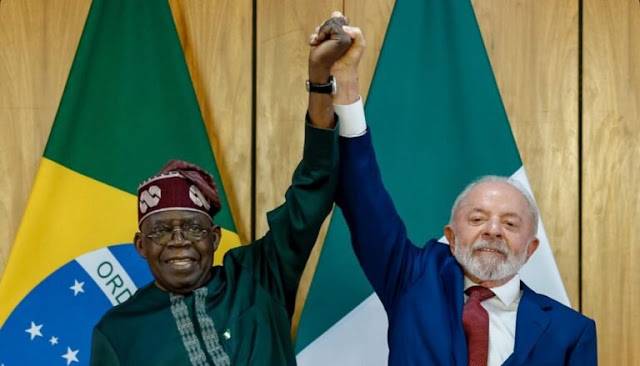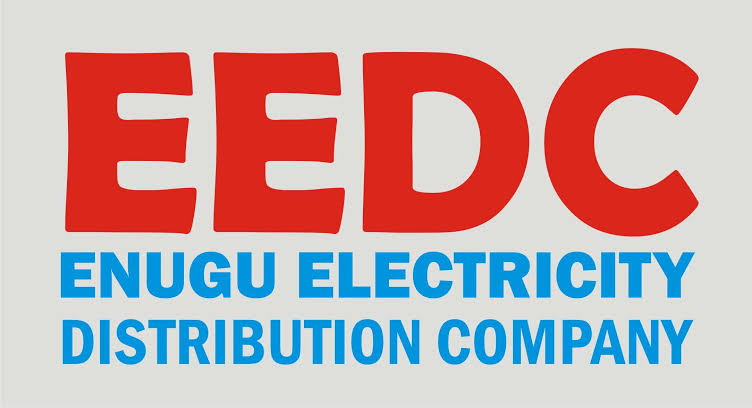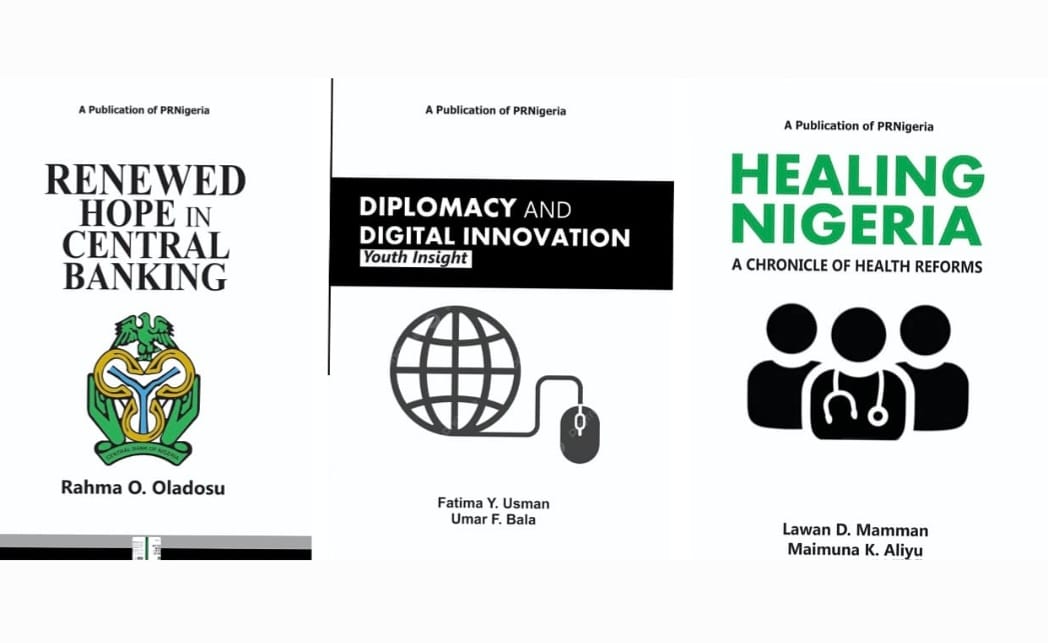In a landmark achievement for Nigeria’s maritime sector, Dr. Abubakar Dantsoho, Managing Director of the Nigerian Ports Authority (NPA), has been elected Vice-President for Africa of the International Association for Ports and Harbours (IAPH). The election, which took place in Tokyo in August 2025, marks a significant milestone in Nigeria’s quest to assert greater influence in global maritime policy. Dantsoho’s appointment not only underscores his personal leadership but also highlights Nigeria’s growing prominence in the international maritime community. As the first Nigerian to head the Port Management Association of West and Central Africa (PMAWCA) since its inception in 1972, Dantsoho is now poised to shape the future of ports across the African continent and beyond.
A Historic Election in Tokyo
The announcement of Dantsoho’s election was made official by NPA spokesperson Ikechukwu Onyemekara in a statement released on Tuesday, August 26, 2025. Onyemekara described the development as a testament to Nigeria’s renewed leadership in maritime development, noting that the international community’s recognition of Dantsoho’s contributions signals confidence in Nigeria’s ongoing reforms. IAPH Secretary-General Masahiko Furuichi welcomed the election, expressing enthusiasm about collaborating with Dantsoho in the years ahead. “I am delighted to work together with you in IAPH for the years to come,” Furuichi stated, signaling the beginning of a new chapter in Nigeria’s engagement with global maritime governance.
The IAPH, founded in 1955 and headquartered in Tokyo, is a global alliance representing over 190 ports and 167 port-related businesses across 89 countries. Its members collectively handle more than 60 percent of global seaborne trade and container traffic, making it a pivotal player in shaping maritime policy. The organization collaborates with major international bodies, including the International Maritime Organization (IMO), the World Customs Organization (WCO), and the United Nations system, to promote trade efficiency, port resilience, and sustainable growth. Dantsoho’s elevation to Vice-President for Africa positions Nigeria as a key voice in these discussions, with the potential to influence policies that impact the continent’s maritime economies.
Dantsoho’s Transformative Leadership at NPA
Since assuming leadership of the NPA, Dr. Dantsoho has spearheaded a series of reforms that have revitalized Nigeria’s maritime sector. His tenure has been marked by significant operational improvements, including a dramatic increase in non-oil exports and a strengthened trade balance. According to data from the Nigerian Export Processing Council (NEPC), non-oil exports surged by 19.59 percent in the first half of 2025, reaching a value of $3.225 billion. Export volumes processed through NPA platforms also climbed to 4.04 million metric tonnes, a remarkable achievement credited with helping Nigeria achieve a trade surplus for the first time in several years, as noted by the Nigerian Economic Summit Group (NESG).
These gains reflect Dantsoho’s strategic vision for repositioning Nigeria’s ports as competitive gateways in the global trade ecosystem. His focus on operational efficiency, infrastructure development, and security enhancements has begun to reverse decades of neglect, particularly at Nigeria’s Eastern ports. By prioritizing non-oil exports, Dantsoho has aligned the NPA’s objectives with Nigeria’s broader economic diversification goals, reducing the country’s reliance on crude oil and fostering sustainable growth.
Revitalizing Eastern Ports: A Strategic Imperative
One of Dantsoho’s most ambitious initiatives has been the revitalization of Nigeria’s Eastern ports—Onne, Port Harcourt, Warri, and Calabar—which have historically been overshadowed by the dominance of Lagos ports. For decades, Lagos handled over 90 percent of Nigeria’s maritime traffic, while Eastern ports languished due to shallow drafts, inadequate infrastructure, and security challenges. Dantsoho’s leadership has sought to address these issues through targeted reforms, including tariff adjustments, infrastructure rehabilitation, and enhanced security measures.
A significant milestone was achieved on July 31, 2025, when the Nigerian-owned MV Ocean Dragon, a vessel with a 349-TEU (Twenty-Foot Equivalent Unit) capacity, berthed at the West African Container Terminal (WACT) in Onne. This event marked a turning point for the port, which is now positioned to serve routes across West, Central, and Southern Africa. The arrival of MV Ocean Dragon symbolizes Nigeria’s growing capacity to compete in regional and global trade, particularly within the framework of the African Continental Free Trade Area (AfCFTA).
To further enhance competitiveness, the NPA introduced revised tariffs in March 2025, aligning charges with operational realities while ensuring Nigeria’s ports remain attractive to international shipping lines. This initiative is part of the NPA’s 25-year master plan, which emphasizes automation, cybersecurity, and environmentally sustainable operations. The plan also includes significant infrastructure investments, with $1.1 billion secured for rehabilitation works at Onne, Rivers, Warri, and Calabar ports. A $2.9 billion expansion project at Onne’s Terminal B (Berths 7 and 8), undertaken in partnership with West African Container Terminal Nigeria Limited, is 62 percent complete, promising to enhance the port’s capacity to handle larger vessels.
Expanding Global Connectivity
Dantsoho’s reforms have also attracted international shipping giants, further integrating Nigeria’s ports into global trade networks. Hapag-Lloyd, a leading global shipping company, recently launched a weekly service at Onne, establishing direct connections between Nigeria’s Eastern ports and international trade routes. This development is expected to boost export volumes for industries in Nigeria’s South-East and North-Central regions, which have long relied on Lagos ports for access to global markets.
In collaboration with the Nigeria Customs Service, the NPA has implemented 24-hour port operations to reduce cargo clearance times and discourage diversion to neighboring countries like Benin and Togo. These efforts have yielded tangible results, with service boat Gross Registered Tonnage (GRT) at Eastern ports increasing by 129.3 percent to 4.58 million tons in 2024. Companies such as Indorama, a major player in Nigeria’s petrochemical industry, have reported significant increases in export volumes, underscoring the economic impact of these reforms.
Infrastructure and Security Investments
To accommodate larger vessels and improve operational efficiency, the NPA has prioritized dredging and infrastructure upgrades at Calabar and Warri ports. These projects aim to address longstanding challenges related to shallow drafts, which have limited the ports’ ability to handle modern container ships. The deployment of new harbour crafts, including two 80-tonne Bollard Pull tugboats—a first for Africa—has further enhanced the NPA’s operational capabilities. These tugboats, designed to assist large vessels in navigating port channels, represent a significant step toward modernizing Nigeria’s maritime infrastructure.
Security remains a critical concern, particularly at Warri and Calabar pilotage districts, where piracy and other threats have historically deterred shipping activities. The NPA has responded by investing in additional navigational aids and strengthening security protocols. Tariff incentives and terminal concessions have also been introduced to attract shipping companies and cargo owners, making Eastern ports more competitive alternatives to Lagos.
The NPA’s electronic call-up system and Export Processing Terminals have streamlined export flows, reducing congestion and improving turnaround times. These measures are particularly significant for industrial hubs in Aba, Onitsha, and other commercial centers, which stand to benefit from enhanced access to maritime trade routes. By easing cargo movements, the NPA is positioning Nigeria to capitalize on the opportunities presented by the AfCFTA, which aims to create a single market for goods and services across the African continent.
Challenges and Opportunities
Despite these achievements, industry experts caution that significant challenges remain. Dredging depth continues to limit the capacity of Eastern ports to handle larger vessels, while infrastructure gaps and bureaucratic inefficiencies pose ongoing obstacles. The NPA acknowledges these issues but insists that its investments will transform Eastern ports into competitive gateways, reducing Nigeria’s over-reliance on Lagos as the country’s maritime hub.
The financial implications of these reforms are substantial. The NPA has projected revenue of ₦1.28 trillion for 2025, a significant increase from the ₦894.86 billion generated in 2024. These funds will support further infrastructure development and operational enhancements, ensuring that Nigeria’s ports remain competitive in a rapidly evolving global market.
A Vision for Sustainable Growth
Dr. Dantsoho’s election as IAPH Vice-President for Africa comes at a pivotal moment for Nigeria’s maritime sector. His leadership has already delivered measurable results, from increased non-oil exports to the revitalization of long-neglected ports. By aligning Nigeria’s maritime strategy with global best practices, Dantsoho is positioning the country to play a leading role in shaping the future of African trade.
The IAPH’s focus on sustainability, resilience, and innovation resonates with Dantsoho’s vision for Nigeria’s ports. His reforms emphasize environmentally sustainable operations, such as the adoption of green technologies and energy-efficient systems. Cybersecurity, a growing concern in the digital age, is also a priority, with the NPA investing in systems to protect port operations from cyber threats.
A New Chapter for Nigeria
As Nigeria’s maritime sector undergoes a renaissance, Dr. Abubakar Dantsoho’s election to the IAPH underscores the country’s growing influence on the global stage. His leadership has brought renewed hope to a sector long plagued by inefficiencies and underinvestment. By revitalizing Eastern ports, expanding global connectivity, and prioritizing operational excellence, Dantsoho is laying the foundation for a more prosperous and sustainable maritime industry.
For the communities of Aba, Onitsha, and beyond, these reforms promise greater access to global markets and economic opportunities. For Nigeria as a whole, they signal a shift toward a future where the country’s ports are not just gateways for trade but engines of economic growth. As Dantsoho takes on his new role at the IAPH, the world will be watching to see how Nigeria’s maritime ambitions unfold—and how they reshape the continent’s trade landscape.






